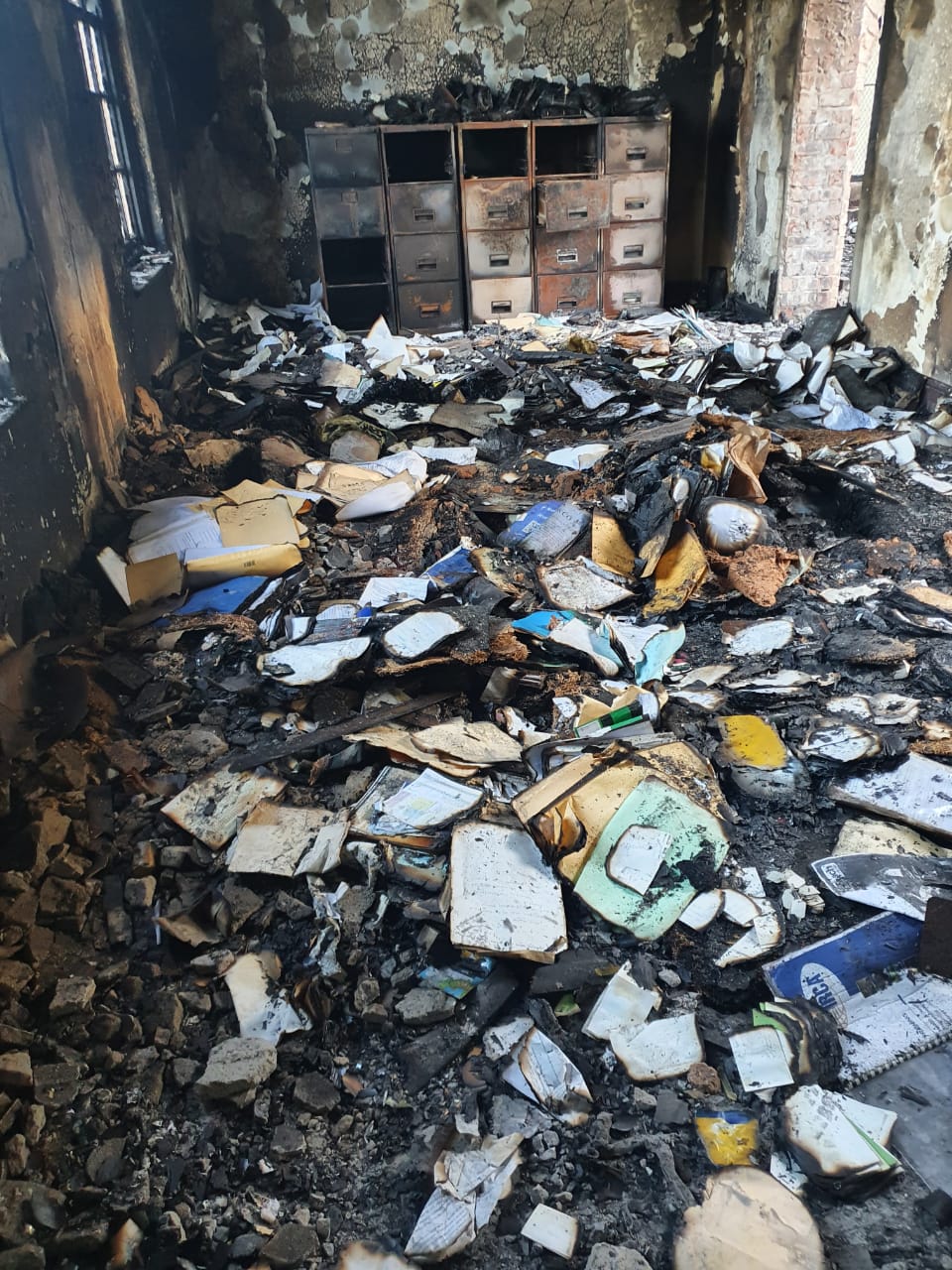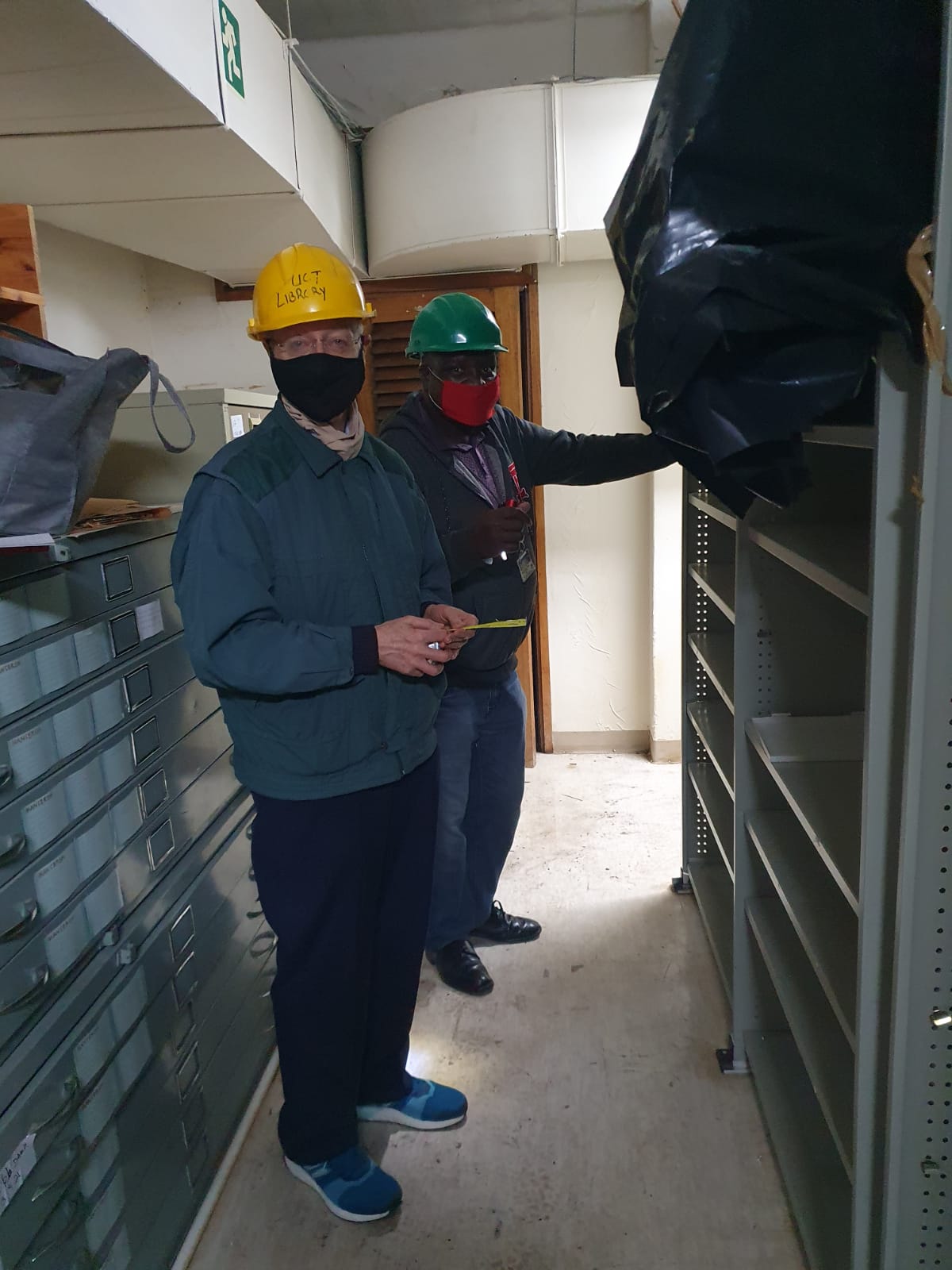by Clive Kirkwood, Archivist, Special Collections
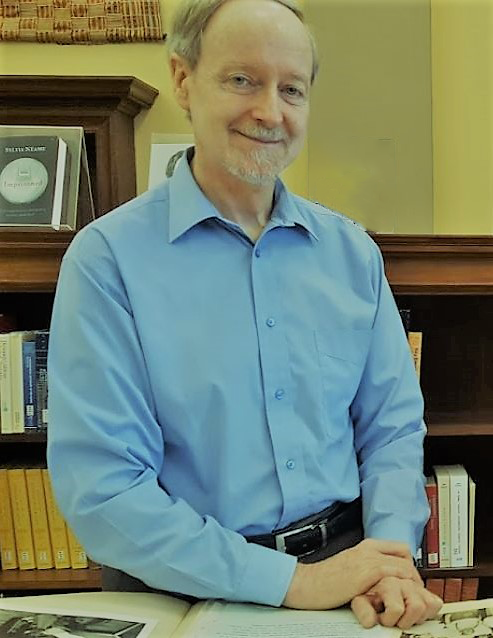
My decade as an archivist in Special Collections was book-ended by the beautiful restoration of the iconic Jagger Library reading room as the department’s home and its destruction by fire followed by relocation and the ongoing recovery process.
Read The Fire Disaster in the University of Cape Town’s Jagger Library in CABO by Clive Kirkwood
Despite the shadow and lasting effects of the fire, on my retirement I look back with much appreciation for the opportunity to work with the fascinating archival collections and expand my knowledge by facilitating archival research in diverse disciplines. And I am also grateful for the collegiality and support of my colleagues in Special Collections and in the broader University of Cape Town Libraries and for inspiring leadership and management at all levels. I often think too of the debt we owe to previous generations of staff in building up the wonderful archival and published holdings of Special Collections to become an internationally recognised resource and flagship for UCT Libraries.

Back: Paul Weinberg, Clive Kirkwood, Sue Ogterop, André Landman. Middle: Isaac Ntabankulu, Busi Khangala, Daniel Ndzitshe, Lesley Hart (Manager: Special Collections), Zweli Vellem, Jonathan Jaftas. Front: Shuter Dyasi, Tanya Barben, Allegra Louw, Belinda Southgate, Beverley Angus
I had previously worked in the National Archives for 30 years in various capacities. My work mostly entailed the regulation of the management of current government records and administering electronic archival information systems. These are interesting and important functions in the archival continuum but are at an arm’s length from direct work with physical archives and research access for which I have a close affinity. In Special Collections I was able to fulfil my interests and also gain broader experience of the services of an academic library.
One of the core functions of the archivist is the professional processing of archival collections of individuals and organisations, either new acquisitions or additions. Archives unlike books are not discrete items but often form large bodies of interlinked material. The goal of the archivist is to respect such original order as may exist but also to create a logical classification structure through which the sorted physical order can be reflected in a finding aid to facilitate research and retrieval. The work requires sustained attention over time (when other pressures permit) so it was very satisfying to me each time I could ultimately publish a finding aid, and place the material in neatly labeled folders and archival boxes in archival storage ready for research use.
Another important task is a research reference service which can entail various ancillary tasks such as offsite retrieval of archives and digitisation. This was an ongoing learning process, requiring me to draw on and brush up on my historical training, build up knowledge of the diverse archival collections which include archaeology, architecture, anthropology, astronomy, botany, civil society movements, geology, languages, literature and folklore, music composition and political studies – and acquire some of the terminology specific to these fields so as to communicate with the users! The sharing of knowledge by colleagues and practical support in physically managing awkward material was indispensable in mastering this service which I found particularly rewarding. As Special Collections’ services are open to any bona fide researcher, besides UCT staff and students I engaged with a range of users including eminent local and overseas scholars and writers in many disciplines, judges, cabinet ministers, members of parliament, human rights lawyers, genealogists and others simply seeking tangible documentary traces affirming their own or their communities’ memories.
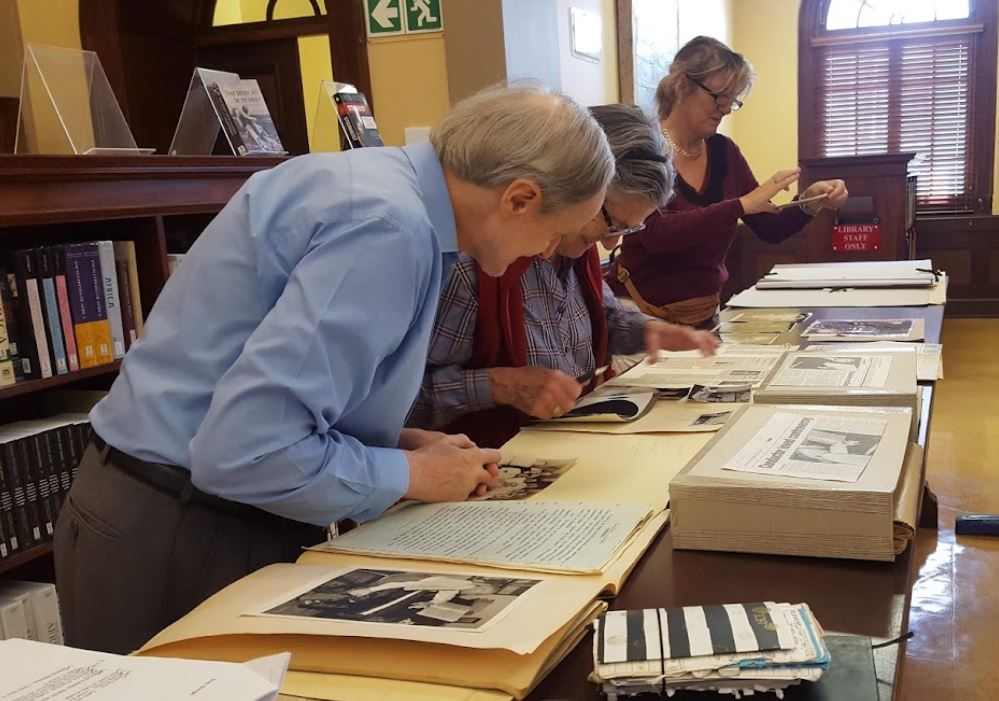
Other tasks I performed included maintaining the Primary Collections control instruments: to keep track of archival collections from acquisition through fumigation, temporary storage and processing, and to record the precise location and extent of archival collections spread through five different archival stores. I was responsible for maintaining the collection-level guide to Primary Collections’ manuscript holdings, the Guide to Manuscripts in UCT Libraries of which revised editions were published in 2013, 2017 and 2020.
I experienced a number of notable developments in my time in Special Collections. A long-needed custom-designed facility was completed in 2013 at Meulenhof in Mowbray which necessitated a major redistribution of archival collections between the various stores according to the relative frequency of consultation. Planned by Lesley Hart based on long experience of research use, the redistribution has stood the test of time. However as the compacti had been designed for space saving, archival boxes were to be placed differently necessitating the complete relabelling and marking of some 6500 boxes then in various different stores before being moved! It took several weeks for a team of student assistants under my supervision to complete the task. In 2019 this experience was repeated in the archival store of the Kaplan Centre for Jewish Studies when it was refurbished.
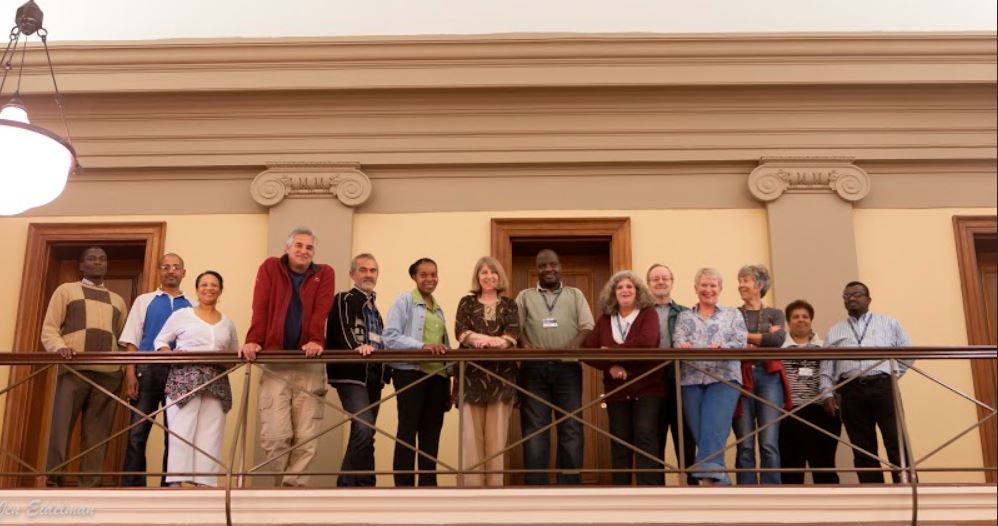
The launching of the Humanitec Digital Collections showcase in 2014 was an advance in making digitised archives including visual archives easily accessible. In recent years UCT Libraries has developed a more powerful modern display platform using Omeka S, a web publishing platform for Galleries, Libraries, Archive and Museums, which has been named Ibali, from the isiXhosa for story, suggesting the notion that ‘Archives tell our Stories’. A significant breakthrough for electronic access to archival finding aids was achieved from 2015 onwards with the implementation of a searchable database of finding aids under the project management of André Landman using the open source application Access to Memory or AtoM based on archival principles and endorsed by the International Council on Archives. The collection-level information from AtoM was also harvested into UCT Libraries’ catalogue so that searches on it pick up archival collections. (The default indication in the catalogue entry ‘Available Online’ does however tend to give users false expectations of full-text access to all archives!)
Special Collections’ occupation of the newly restored Jagger Library reading room in 2012 also marked the integration of the access services of the African Studies Library and Manuscripts & Archives in a shared reading room for the first time. This was certainly of benefit to users and necessitated both archivists and librarians acquiring some insight into their respective holdings and retrieval and issuing methods. It broadened my understanding and appreciation of the richness of the resources and the work of librarians.
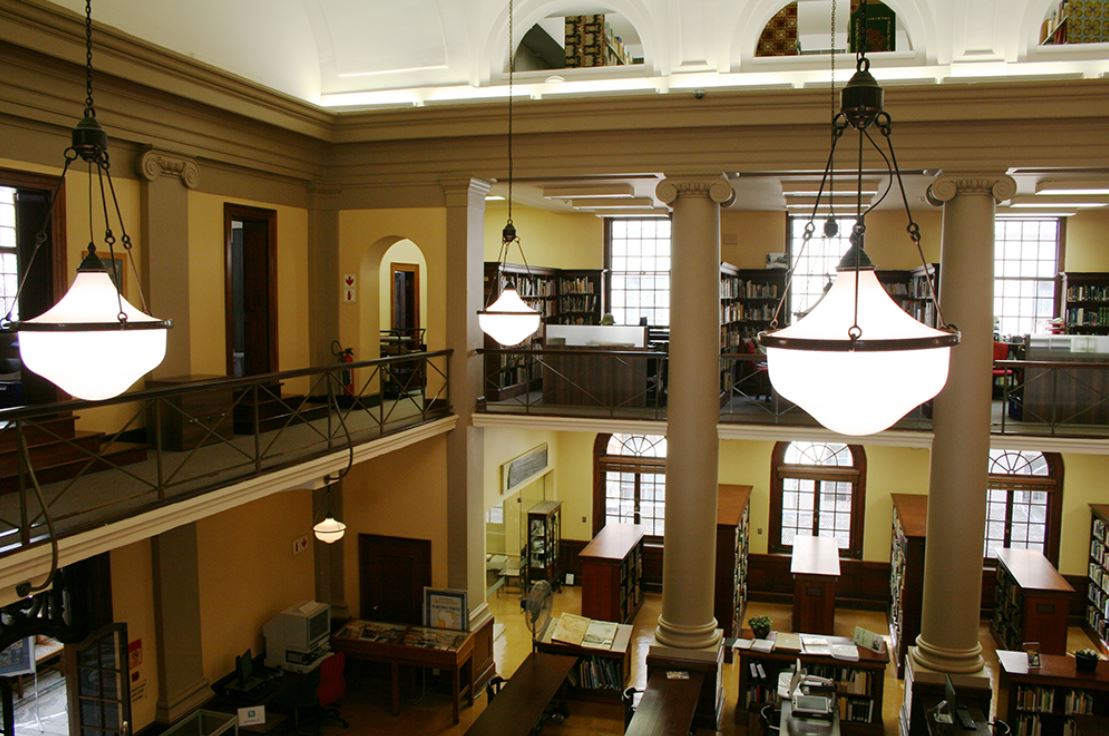
Although it was initially envisaged that an archivist and a librarian would be on reference duty together, limited staffing made this difficult to sustain. Given the different nature of the holdings and rules applied, and the closer supervision required in the retrieval, issuing and use of archival material, the experiment of a shared reading room proved at times to be a strain for staff involved and had the potential to impact negatively on the reference services and holdings. Away from the pressures of the information desk I valued the friendly collaboration of African Studies Library and Government Publications colleagues. Together we were able to produce comprehensive and inclusive reference services, exhibit our shared resources physically and online, and maintain a collective social media presence across different platforms.

Over time my work brought me into contact with most units and branches of UCT Libraries and I have much appreciation for their co-operation. In particular the Facilities team gave extensive support in the complex logistics of a supply service from several offsite stores, in maintenance of the stores and in accommodating my personal lighting and computer needs to manage my eye problems. I extend my deepest appreciation to my Special Collections colleagues and managers for their support and sharing of expertise. And I am grateful that although retired I am still able during 2023 to continue working to contribute to the recovery of the archives in Special Collections after the Jagger Library fire.

